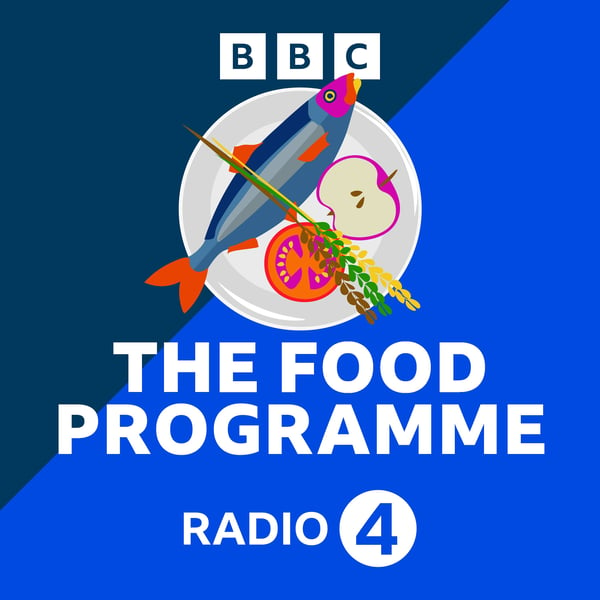Beans Part 1: Are Legumes the Answer?
The Food Programme
BBC
4.4 • 943 Ratings
🗓️ 27 March 2022
⏱️ 30 minutes
🧾️ Download transcript
Summary
In the first of two programmes all about beans, Sheila Dillon asks if they could be the answer to our issues with health and global warming.
We're often told how eating less meat is crucial for a healthy lifestyle and a healthy planet. In response, supermarkets and food outlets have been adding more meat-free options, and whole plant-based product ranges, which are often highly processed. So what if there was another food that we could all do with eating a lot more of, that's relatively affordable, is healthy and can be good for soil health and the environment? For hundreds of years beans have had a reputation in the UK of being food for the poor, vegetarians, or as filler for stews and curries. Mainly sold pre-cooked in cans, the ranges have been growing in recent years, but by far the biggest seller are Baked Beans.
Someone who wants to change that is entrepreneur Amelia Christie-Miller, the founder of a new brand called Bold Bean Co. Sheila finds out why Amelia's beans that come in glass jars, taste so different from the ones she is used to eating from cans. The beans are imported from Spain, where they are a much bigger part of the culture. The owner of Spanish restaurant chain Bar44, Owen Morgan demonstrates how to make them the main event; Dietitian and nutritionist Dr Megan Rossi from Kings College London explains how the can also improve our gut health; and Dr Pete Iannetta from the James Hutton Institute, and writer and grower Susan Young (author of "Growing Beans: A Diet for Healthy People and Planet") say we should all be considering growing more beans in order to reap the benefits for our soils and health.
Presented by Sheila Dillon Produced in Bristol by Natalie Donovan
Transcript
Click on a timestamp to play from that location
| 0:00.0 | You don't need us to tell you there's a general election coming. |
| 0:04.7 | So what does it mean for you? |
| 0:06.7 | Every day on newscast we dissect the big talking points, the ones that you want to know more about. |
| 0:12.4 | With our book of contacts, we talk directly to the people you want to hear from. |
| 0:16.8 | And with help from some of the best BBC journalists, |
| 0:19.5 | we'll untangle the stories that matter to you. |
| 0:23.0 | Join me, Laura Kunsberg, Adam Fleming, Chris Mason and Patty O'Connell for our daily |
| 0:28.4 | podcast. |
| 0:29.4 | Newscast, listen on BBC Sounds. BBC Sounds. BBC Sounds, music radio podcasts. |
| 0:38.0 | Hello, you've downloaded a podcast of BBC Radio 4's The Food Programme. |
| 0:43.0 | Welcome to our world, from cooking to culture, politics to pleasure. |
| 0:48.0 | We hope you enjoy it. UN scientists are to urge people to help combat global warming by cutting down on |
| 0:57.2 | meat and switching to plant-based diets. |
| 0:59.5 | Your colleague George Eustace has said the government is looking at taxing high carbon foods. |
| 1:04.6 | He means in particular meat and probably in particular beef. |
| 1:07.5 | When are we going to see the details of that? |
| 1:09.8 | Daily meat consumption in the UK has fallen by 17% in the last decade but |
| 1:14.4 | researchers from the University of Oxford say a more substantial reduction is |
| 1:18.2 | still required. The National Food Strategy... |
| 1:20.4 | Got that? eat less meat |
| 1:24.0 | an edict that seems to be based mostly on the environmental damage |
| 1:28.0 | from animals reared in factories |
... |
Please login to see the full transcript.
Disclaimer: The podcast and artwork embedded on this page are from BBC, and are the property of its owner and not affiliated with or endorsed by Tapesearch.
Generated transcripts are the property of BBC and are distributed freely under the Fair Use doctrine. Transcripts generated by Tapesearch are not guaranteed to be accurate.
Copyright © Tapesearch 2025.

